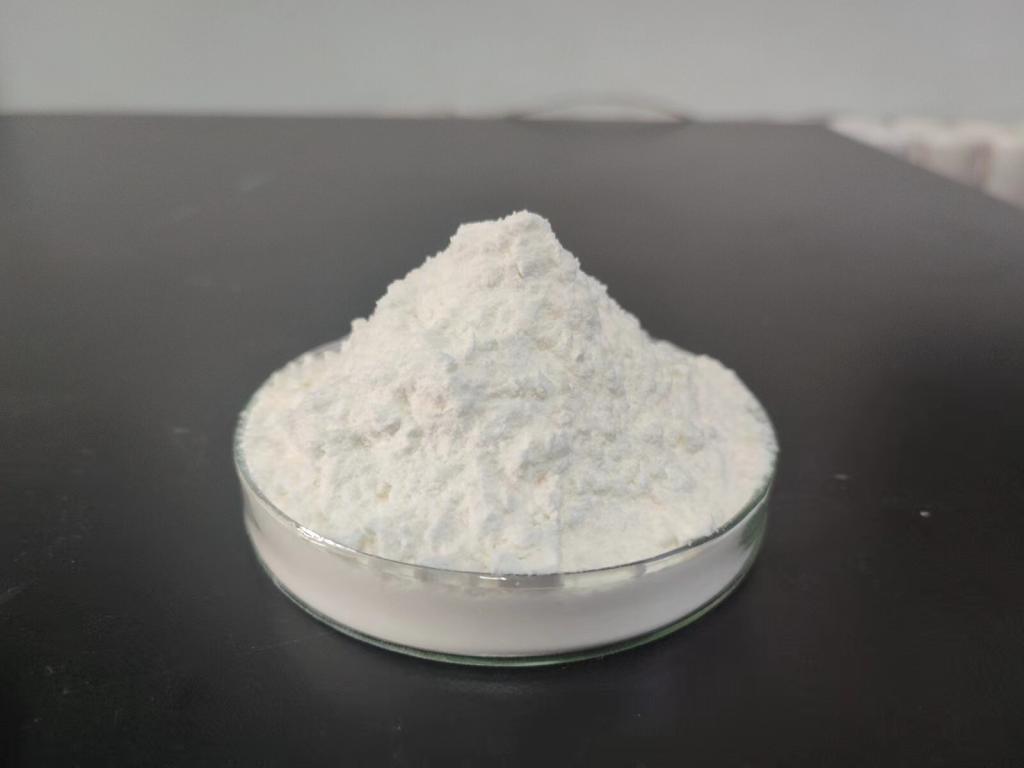Tel:0086 18231198596

News
Factory Dropship: ε-Polylysine Hydrochloride: Pioneering Food Preservation in the Modern Age.
TIME:2023-10-10
Introduction:
The preservation of food has been a crucial concern throughout human history. As populations have grown and food production has expanded, innovative methods have emerged to ensure that food remains safe, nutritious, and palatable for longer periods. In the modern age, food preservation has become a science, driven by advancements in technology and a growing awareness of the importance of food safety and sustainability.
ε-Polylysine hydrochloride, a natural antimicrobial agent, is at the forefront of modern food preservation techniques. Derived from bacterial fermentation, this compound has garnered attention for its ability to inhibit the growth of various microorganisms, including bacteria and fungi, making it a valuable tool in ensuring the safety and longevity of food products.
The Science of ε-Polylysine Hydrochloride:
ε-Polylysine hydrochloride, often referred to simply as ε-polylysine, is a polymer of the amino acid lysine. It is produced by certain strains of bacteria, primarily Streptomyces albulus, through fermentation processes. This compound has a net positive charge, which allows it to interact with negatively charged bacterial cell membranes, leading to its antimicrobial activity.
Mechanisms of Action:
Membrane Disruption:
ε-Polylysine disrupts the integrity of bacterial and fungal cell membranes. It binds to the negatively charged components of the cell membrane, causing leakage of intracellular contents and ultimately leading to cell death.
Inhibition of Microbial Growth:
By interfering with essential cellular processes, ε-polylysine effectively inhibits the growth of various microorganisms, including both Gram-positive and Gram-negative bacteria, as well as yeast and molds.
Applications in Food Preservation:
Extending Shelf Life:
One of the primary applications of ε-polylysine hydrochloride in the food industry is the extension of shelf life. By inhibiting the growth of spoilage microorganisms and pathogens, it helps maintain the quality and safety of food products for longer periods.
Pathogen Control:
ε-Polylysine is effective against a wide range of foodborne pathogens, including Salmonella, Escherichia coli, and Listeria monocytogenes. Its use reduces the risk of foodborne illnesses associated with these pathogens.
Reducing Food Waste:
Food waste is a global issue, and a significant portion of it occurs due to spoilage during storage and distribution. ε-Polylysine's role in preserving the quality and safety of food products contributes to waste reduction.
Clean Labeling:
As consumers increasingly demand clean label products with fewer synthetic additives, ε-polylysine's natural origin makes it an attractive option for food manufacturers. It aligns with the desire for transparency and sustainability in food production.
Versatility:
ε-Polylysine hydrochloride is suitable for a wide range of food products, including dairy, meat, baked goods, beverages, and more. Its versatility allows it to be incorporated into various formulations and production processes.
Benefits of Using ε-Polylysine Hydrochloride in Food Preservation:
Improved Food Safety:
The ability of ε-polylysine to inhibit the growth of foodborne pathogens enhances food safety, reducing the risk of foodborne illnesses and associated recalls.
Extended Shelf Life:
By preventing spoilage and maintaining food quality, ε-polylysine helps extend the shelf life of products, reducing the need for frequent production and distribution.
Waste Reduction:
Less food is wasted when products have a longer shelf life. ε-Polylysine's role in reducing food waste aligns with sustainability goals and reduces the environmental impact of food production.
Sustainable Practices:
ε-Polylysine supports sustainable food production by minimizing the need for synthetic preservatives, which may have environmental and health concerns associated with their use.
Enhanced Supply Chain Efficiency:
By preserving food quality and safety, ε-polylysine contributes to supply chain efficiency, reducing losses during transportation and storage.
Challenges and Considerations:
While ε-polylysine hydrochloride offers numerous benefits in food preservation, several challenges and considerations need to be addressed:
Regulatory Compliance:
Regulatory approvals for ε-polylysine may vary from one country to another. Ensuring compliance with regulations is essential for market access.
Consumer Acceptance:
Raising awareness about ε-polylysine's natural origin and safety is important to gain consumer trust.
Compatibility with Other Ingredients:
Formulating products with ε-polylysine may require adjustments to account for its interactions with other ingredients. Manufacturers should consider these factors during product development.
Production Capacity:
Scaling up the production of ε-polylysine to meet increased demand may pose challenges. Investment in production infrastructure may be necessary.
Conclusion:
ε-Polylysine hydrochloride represents a pioneering solution in the modern age of food preservation. Derived from natural sources, this antimicrobial agent inhibits the growth of various microorganisms, contributing to food safety, extended shelf life, and reduced food waste. Its versatility and clean label appeal make it a valuable tool for food manufacturers seeking to meet the demands of consumers for safe, sustainable, and high-quality food products.
As the global population continues to grow, and with it the need for efficient food production and distribution, ε-polylysine offers a promising path toward a more sustainable and resilient food industry. However, addressing regulatory, consumer, and production challenges is essential to fully harness the benefits of ε-polylysine hydrochloride in modern food preservation. With continued research, innovation, and collaboration, ε-polylysine can pave the way for a safer, more sustainable, and more efficient food supply chain in the modern age.

 CONTACT
CONTACT




